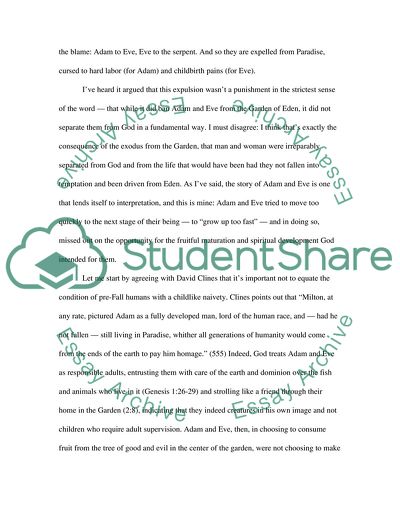Cite this document
(Adam and Eves Expulsion from Paradise Term Paper, n.d.)
Adam and Eves Expulsion from Paradise Term Paper. Retrieved from https://studentshare.org/religion-and-theology/1718884-the-creation-story-in-genesis
Adam and Eves Expulsion from Paradise Term Paper. Retrieved from https://studentshare.org/religion-and-theology/1718884-the-creation-story-in-genesis
(Adam and Eves Expulsion from Paradise Term Paper)
Adam and Eves Expulsion from Paradise Term Paper. https://studentshare.org/religion-and-theology/1718884-the-creation-story-in-genesis.
Adam and Eves Expulsion from Paradise Term Paper. https://studentshare.org/religion-and-theology/1718884-the-creation-story-in-genesis.
“Adam and Eves Expulsion from Paradise Term Paper”, n.d. https://studentshare.org/religion-and-theology/1718884-the-creation-story-in-genesis.


